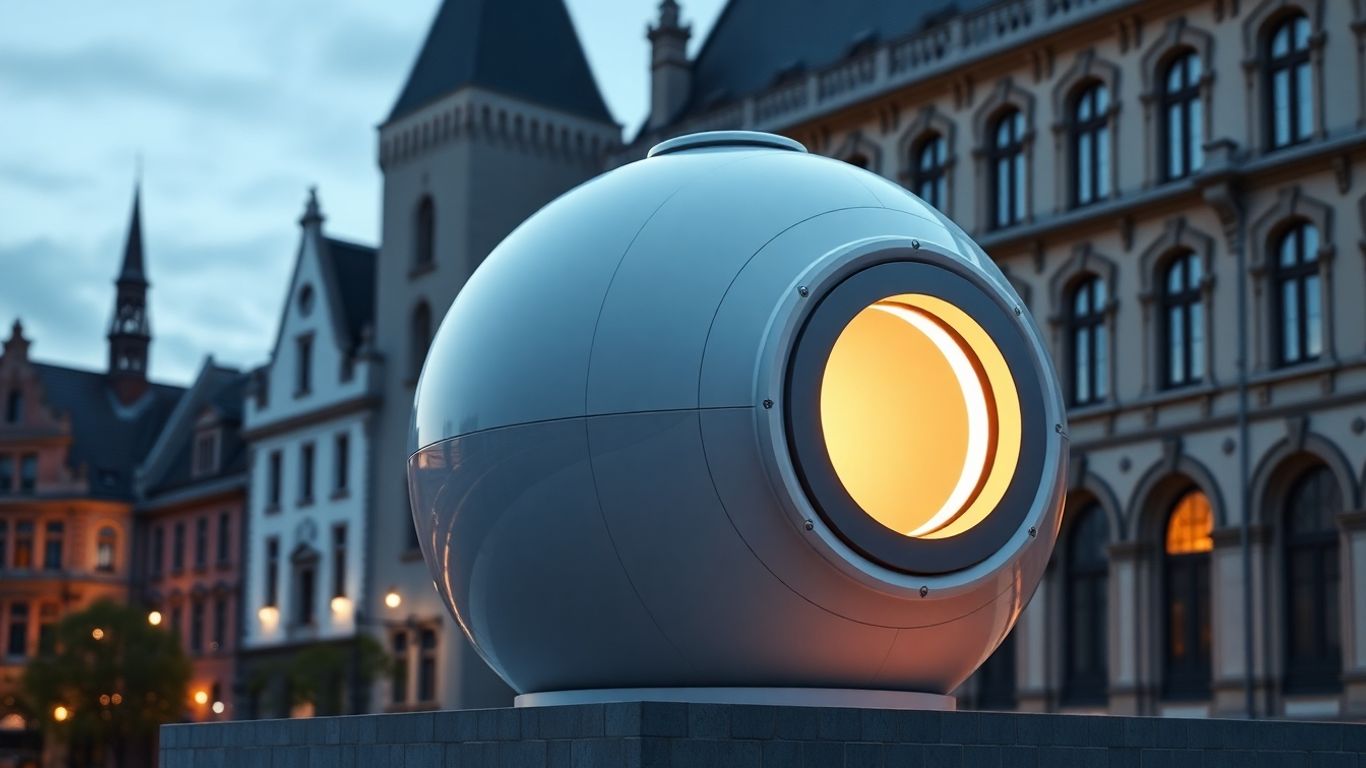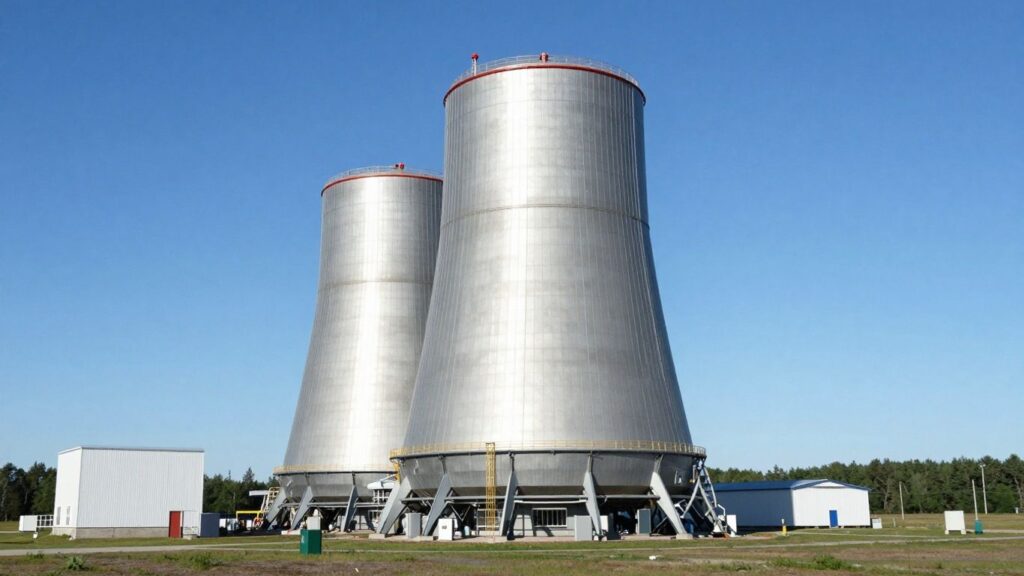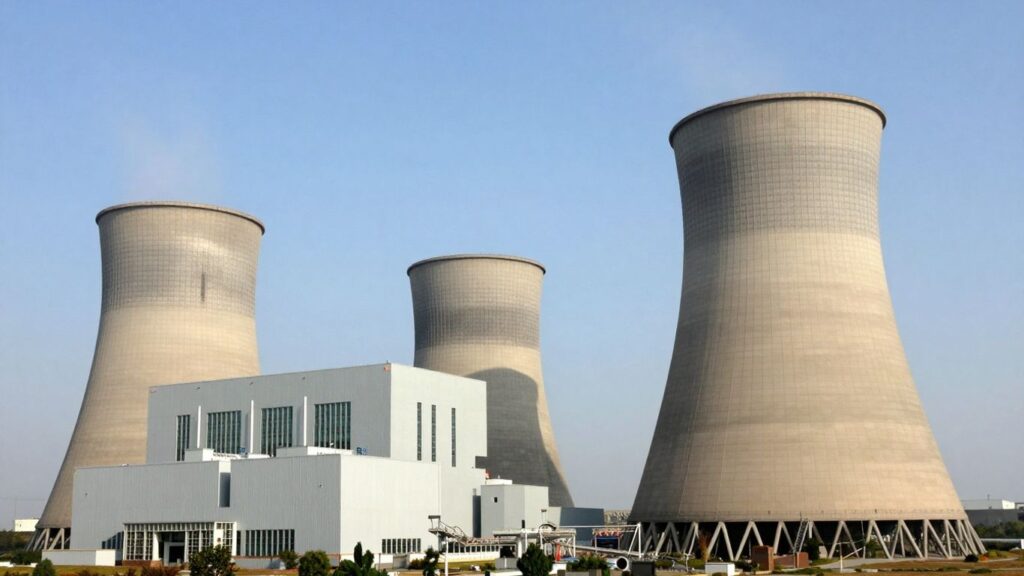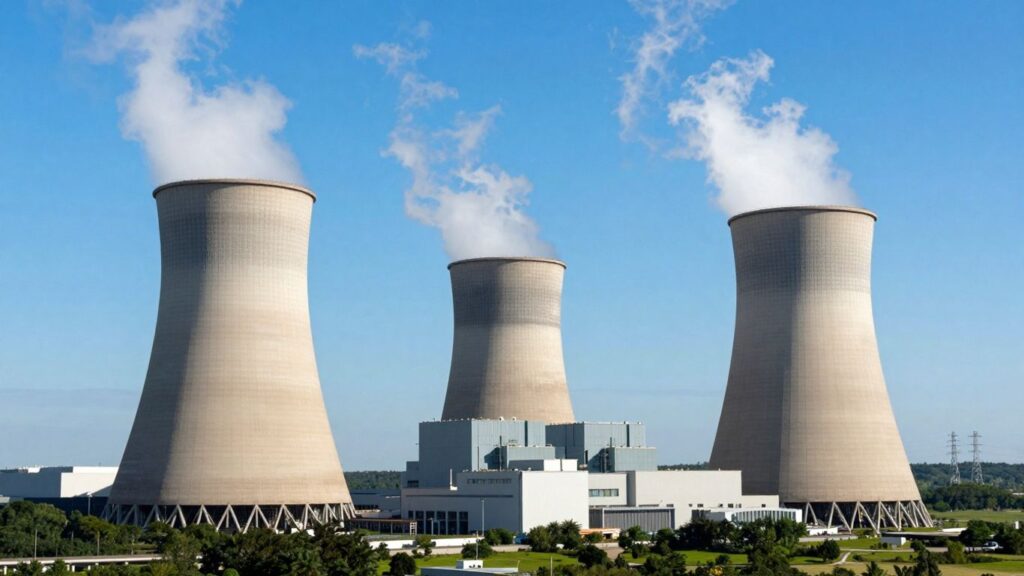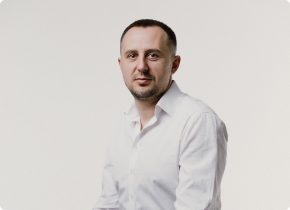A European consortium focused on developing the advanced Eagles-300 small modular reactor (SMR) has inked a significant agreement with the nuclear regulators of Belgium, Italy, and Romania. This collaboration marks the official launch of an international pre-licensing initiative, a crucial step towards harmonizing regulatory approaches for next-generation nuclear technology and facilitating global deployment.
Key Takeaways
- The Eagles consortium aims to commercialize and deploy the lead-cooled Eagles-300 SMR globally by 2039.
- This initiative is the first pilot project under the IAEA’s Nuclear Harmonisation and Standardisation Initiative.
- The agreement seeks to reduce regulatory duplication and accelerate the worldwide adoption of advanced SMRs.
Harmonizing Global SMR Deployment
The Eagles consortium, comprising Ansaldo Nucleare, Enea, Raten, and SCK CEN, is working on the Eagles-300, a lead-cooled SMR designed for serial production and rapid global deployment. Recognizing that differing national licensing procedures can hinder the scalability of SMRs, the consortium has proactively engaged with regulators to align safety standards and regulatory expectations early in the development process.
This pioneering pre-licensing project is the first of its kind, fostering collaboration between national regulators and developers at an unprecedented stage. The consortium emphasizes that international harmonization is key to overcoming the challenges posed by diverse national rules, thereby enabling greater benefit from the inherent scalability of SMR designs.
Advancing European Nuclear Leadership
Established in June, the Eagles consortium is committed to bolstering Europe’s leadership in advanced nuclear reactor technology. This aligns with European Union energy policies that prioritize reliable, low-carbon energy sources. The Eagles-300 is envisioned to provide dependable, affordable, and decarbonized energy, setting a new benchmark for SMRs.
Eagles-300: Features and Advantages
The Eagles-300 is designed with several key features to enhance its appeal for global energy markets:
- High Power Output and Grid Flexibility: Suitable for electricity generation, industrial heat supply, and hydrogen production.
- Modular Design: Promises reduced construction investment, faster build times, and flexible deployment options compared to traditional reactors.
- Sustainable Fuel: Will utilize mixed-oxide nuclear fuel, including recycled materials, to minimize radioactive waste.
- Lead Cooling: Employs lead as a coolant, offering significant safety advantages due to its high boiling temperature, which virtually eliminates coolant boiling concerns. This also contributes to design simplification and improved economic performance.
Lead-cooled reactors represent a significant advancement in Generation IV reactor designs, offering enhanced safety and efficiency.


